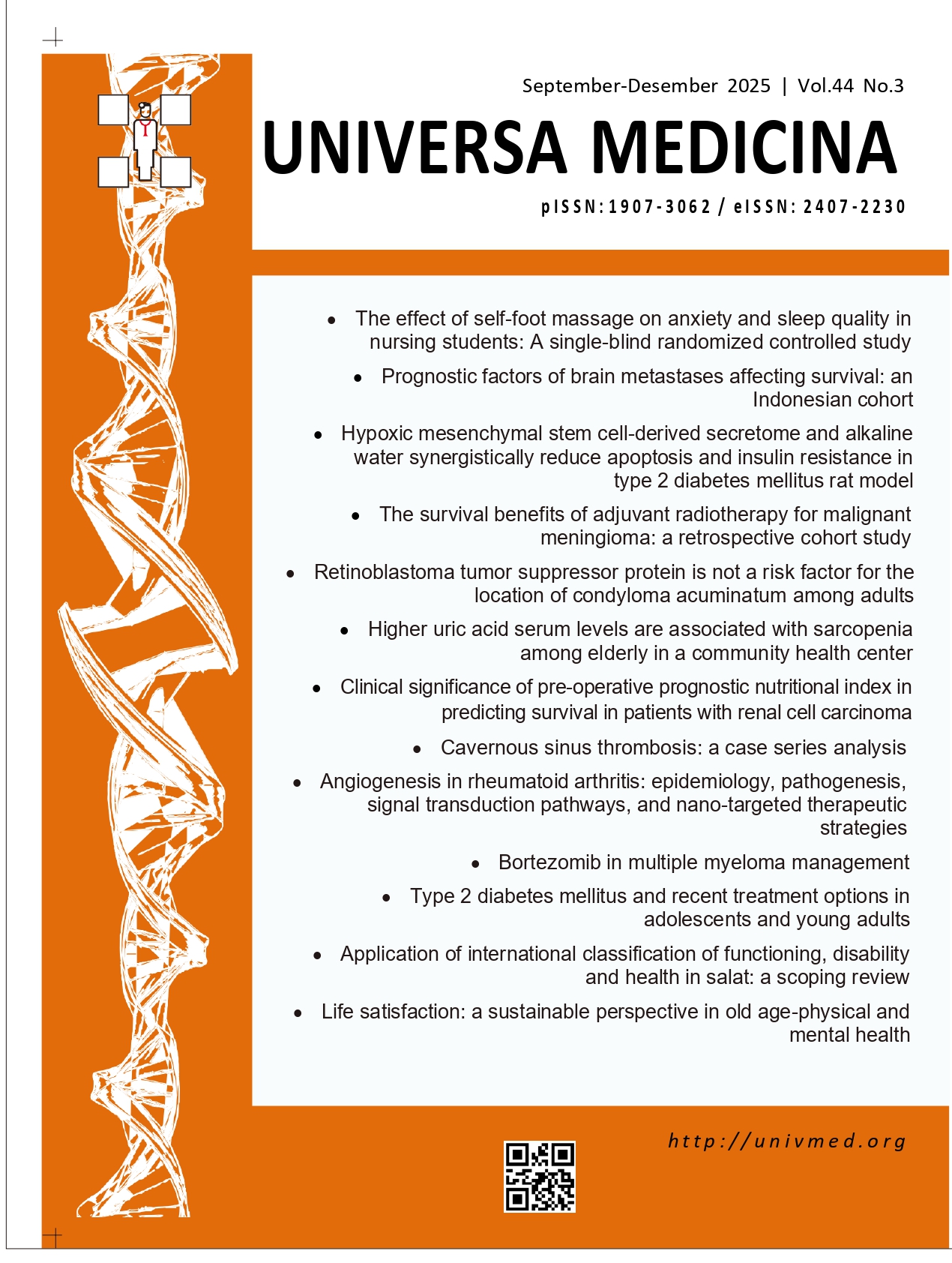Universa Medicina (UnivMed) is an official scientific publication of the Faculty of Medicine Universitas Trisakti and is a peer-reviewed open-access journal. Universa Medicina is a four-monthly medical journal that publishes new research findings on a wide variety of topics of importance to biomedical science and clinical practice. Universa Medicina is a general medical journal that focuses on all aspects of human health.
Accredited journal based on Ministerial Decree of the Minister of Research and Technology / Head of National Research and Innovation Agency of the Republic of Indonesia with First Grade (Peringkat 1, Sinta 1, Garuda) No. 148/M/KPT/2020 Volume 38 Number 3, 2019 to Volume 43 Number 2, 2024.
The Univ Med journal has been indexed and abstracted and displayed in Clarivate Analytics Web of Science Core Collection Database (Emerging Source Citation Index) (Q4 JCR) 2023, 2024, Dimensions-Digital Science, CABI, ASEAN Citation Index, DOAJ, Chemical Abstract Services (CAS), ROAD, National Library of Medicine, ICMJE, ICI, and SINTA.
Current Issue
Vol. 44 No. 3 (2025)
Editorial
Bench to bedside and beyond: evolving trends in translational research
- 285-287
- abstract viewed: 360
- PDF: 260
Original Articles
The effect of self-foot massage on anxiety and sleep quality in nursing students: A single-blind randomized controlled study
- 288-297
- abstract viewed: 663
- PDF: 301
Prognostic factors of brain metastases affecting survival: an Indonesian cohort
- 298-309
- abstract viewed: 356
- PDF: 219
The survival benefits of adjuvant radiotherapy for malignant meningioma: a retrospective cohort study
- 318-327
- abstract viewed: 301
- PDF: 184
Retinoblastoma tumor suppressor protein is not a risk factor for the location of condyloma acuminatum among adults
- 328-334
- abstract viewed: 309
- PDF: 164
Higher uric acid serum levels are associated with sarcopenia among elderly in a community health center
- 335-344
- abstract viewed: 331
- PDF: 128
Clinical significance of pre-operative prognostic nutritional index in predicting survival in patients with renal cell carcinoma
- 345-351
- abstract viewed: 268
- PDF: 118
Case Report
Review Article
Angiogenesis in rheumatoid arthritis: epidemiology, pathogenesis, signal transduction pathways, and nano-targeted therapeutic strategies
- 359-379
- abstract viewed: 482
- PDF: 191
Type 2 diabetes mellitus and recent treatment options in adolescents and young adults
- 394-405
- abstract viewed: 587
- PDF: 198
Application of international classification of functioning, disability and health in salat: a scoping review
- 406-418
- abstract viewed: 374
- PDF: 251
Life satisfaction: a sustainable perspective in old age-physical and mental health
- 419-426
- abstract viewed: 374
- PDF: 183


